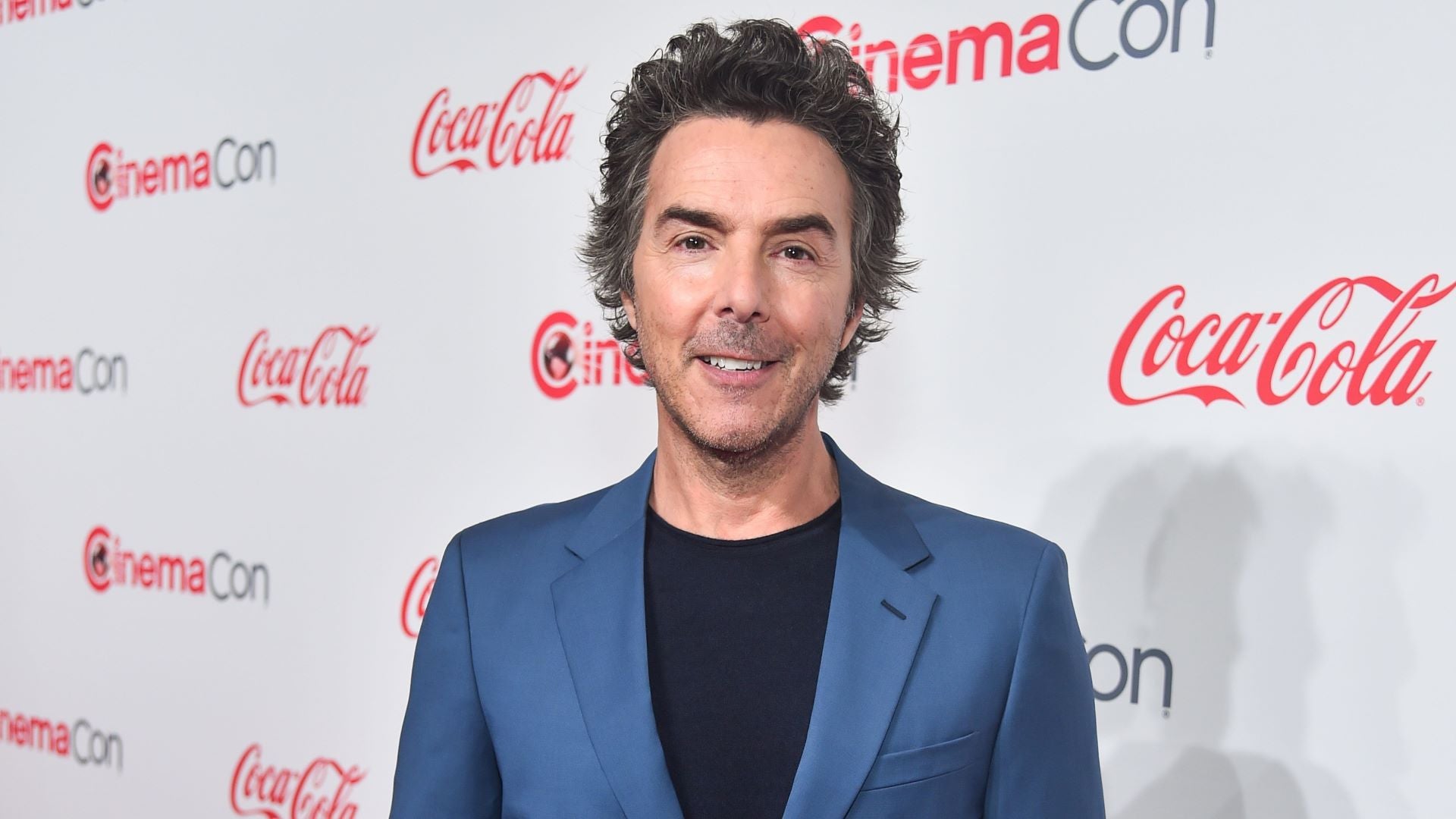It looks like the MCU may have finally found its Mister Fantastic. So get out of the way John Krasinski, because Pedro Pascal is bringing his every-dad powers to Marvel’s smartest, most malleable Super Family.
The news couldn’t come any sooner. After the recent Variety article showing just how bright the Marvel dumpster is currently burning at Disney, and with The Marvels absolutely tanking at the box office, the House of Mouse needs to draw some attention away from its $274M dud. What better way to do that than to leak one of the stars of its most anticipated projects.
Pedro Pascal is without a doubt an awesome actor, but I must admit I’m a bit disappointed by his casting. For a while, I’ve been kicking around the idea that Marvel's biggest problem is money, and, at least in my mind, Pedro seems like the perfect manifestation of this problem.
So, let’s get into…
Ever hear the old saying "If your only tool is a hammer, every problem looks like a nail?" Well, it's becoming increasingly clear that Disney's only real tool is money, which they've been throwing around with abandon to mixed results, especially recently.
The main problem with Marvel tossing gobs of money at these movies is that at a certain point, spending more cash on a movie ultimately makes it worse. Once these blockbusters start to approach $200 million budgets, they become an investment the studio absolutely can't afford to lose. These bloated budgets create an ouroboros effect where the more money they spend on a project, the more risk-averse the studio becomes, which manifests itself by second-guessing their filmmakers’ creative decisions in post and splurging on expensive reshoots to take "safe" routes in order to ensure a medicore “B” CinemaScore rating in early screenings.
Marvel’s need to signficantly tinker in post-production is just a subtle reminder that these suits are more interested in making a product to be pleasurably consumed than a piece of artistic expression. This all leads to my first point about Marvel’s money problems, which isn’t a lack of resources, but a surplus: Marvel doesn’t make stars like they used to.
They Don’t Make ‘Em Like They Used To
In 2009, after Marvel bet it all on Iron Man and won, Vulture published a story with a now infamous headline: Marvel Rolls Dice, Casts No-Names for Thor.
Vulture was absolutely right. What makes this headline so funny in hindsight is that it’s a testament to how creatively brilliant the MCU’s output was in the run-up to Avengers: Endgame. Chris Hemsworth was George Kirk for a heroic 10 minutes and Tom Hiddleston didn’t even have that much to brag about at that point in their careers. Hell, Chis Pratt was also practically a no-namer when he was annointed as Star-Lord, best known at that point as Andy Dwyer, the loveable rube on Parks and Rec.
In the early days of the MCU, Marvel knew that it needed to keep its budgets manageable. One of the best ways to accomplish that was to keep above-the-line costs down (i.e. talent salaries). So they gambled on up-and-coming actors, hiring essentially talented C+/B- actors for long-term, multi-picture contracts. Instead of paying for names on a poster, Marvel bet big on the quality of their scripts, and the gamble paid off. Those “no-names” are now huge stars.
Remember last year when Quentin Tarantino caught heat for saying that the Marvel actors aren’t the stars, the characters are? He was right. In the early 2010s, it looked like Marvel already understood that insight and one could argue that it was a key part in those films' extreme profitability.
Pedro Pascal is going to bring a lot to the role for sure, but gambling on a no-name Reed Richards would have been helpful to Marvel in the long run. I’m not saying it doesn’t matter who plays Reed Richards – it does. Of course we want a great actor to play him, but he doesn’t need to be a household name. There are plenty of talented unknown actors just waiting for an opportunity like this.
Let’s look at Robert Downey, Jr. for a second. He was already a household name before he stepped into Iron Man, but after being released from prison his reputation was tarnished a bit, which helped Marvel pick him up for relatively cheap. Downey made $2.5 million for the first Iron Man, a handsome sum for sure. By Avengers: Endgame, he was pulling down $75 million. To put that into perspective, all of John Wick 3 was made for the same amount of money it took Robert Downey, Jr. to just walk on set for Endgame.
The point I’m trying to make here is that Pascal has some serious heat behind him and he’ll be taking all that clout to the negotiating table. He’s not taking a big franchise role for a measly $2.5 million, nor should he. Whatever they pay him now – and assuming the film is successful – you can be absolutely sure it will be the least amount of money he’s ever paid to don the spandex.
The Fantastic Four characters are famous enough to draw a substantail built-in audience, a luxury films like Guardians of the Galaxy and Thor didn’t have. Investing in unproven talent would be more than offset by the Fantastic Four’s decades-old fanbase and library of storylines, and, more importantly, Marvel would be able to keep sequel budgets down, since the actors would already be locked into multipicture deals at their less famous rate.
But it seems that after more than a decade of absolute box office dominance for the studio, Marvel’s budgets have become bloated to the point of being a hindrance.
Bloated Budgets
Marvel's budgets are getting quite insane. The Marvels cost $274 million and, before it, Ant-Man and the Wasp: Quantumania cost $200 million. Since Endgame, the studio’s investments don’t seem as sound as they once did.
Take Quantumania, for example. Watching Marvel's new Thanos-level big bad get his ass kicked by a guy who summons the power of ants and listens to his own audio book doesn't exactly sound like a "we need to reassemble the Avengers" level threat. Ant it turns out the celebratory ending we got for that film wasn't always what was intended.
Rumor has it that Quantumania’s ending was changed to be a happier outcome for Scott Lang and his family. It’s entirely possible that’s true, and if so, we’ll give them the benefit of the doubt that the released ending probably tested the best with audiences. But I think we can agree that it's far from good. The Quantumania ending feels like it was made by committee. Everything feels calculated, and I mean in a math way, not in a creative way. While the rumored darker ending would have been a better set-up for Kang on the big screen, you could see how Disney would have been nervous to make a $200 million gamble on a finale that could realistically take years to resolve.
That's kind of the problem here. These movies are getting too expensive for artists to take any creative risks. Instead, the studios play it safe and make for something that I would argue is just destined for the ninth ring of hell: the forgettably mediocre. Good movies are great. Bad movies... if they fail in just that right way still could be fun and memorable. But the forgettably mediocre is just time wasted on an experience your memory doesn't even want to bother to catalog.
Marvel’s reliance on “fixing their films” in post, has changed the power dynamics of how the studio and filmmakers collaborate. And it’s clear that hasn’t always been for the best. In the beginning, Marvel trusted its directors and filmmakers to make a great movie. Then came Ant-Man. It didn't seem like such a big deal at the time, but to me Edgar Wright walking away from Ant-Man was a real harbinger of things to come.
Directors for Hire
Wright had been developing Ant-Man since 2003, well before Marvel studios was even a thing. His original pitch embraced Scott Lang’s burglar roots, taking a more "Elmore Leonard" route with the script, which he continued to develop well after Marvel Studios‘ Iron Man success.
However, the tension between Wright and the studio really started to boil over after The Avengers debuted. The studios saw Ant-Man as a key part of Phase 2 and wanted to use the film to expand the growing and interconnected MCU. Wright saw it as a standalone story. Eventually, after a few unsuccessful rewrites by Wright and Jo Cornish, the studio decided to have a few of their own writers take a crack at the draft. That was the last straw for Wright, who usually writes and directs all his movies.
“I wanted to make a Marvel movie but I don’t think they really wanted to make an Edgar Wright movie,” the filmmaker would tell Variety. “Suddenly becoming a director-for-hire on it, you’re sort of less emotionally invested and you start to wonder why you’re there, really.”
Director for Hire. Yeah, most quality movie directors don't really go for those kinds of gigs. Filmmakers, especially the good ones, usually chafe at having to adjust their films to accommodate the needs of someone else. At Marvel, that's now non-negotiable. Those films need to set up other films, or worse, TV shows. Marvel film directors are now just like TV directors: hired hands.
Speaking of hired hands, that’s kind of where Fantastic Four director Matt Shakman fits in. At the moment, Marvel has more or less alienated itself from the pool of traditional film directors. However, Shakman seems like an ideal candidate to come from Marvel's new, preferred mold of directors. He’s a veteran TV director, who comes with plenty of experience ranging from dramas like Game of Thrones to comedies like It's Always Sunny in Philadelphia. He's also got MCU experience, having directed all of WandaVision, and seems like the perfect hired hand director Marvel needs to turn things around for Phase 6.
But even though they have a director and, reportedly, an actor almost on board, there’s still one key component that needs to be meticulously tended to: the story.
The Fantastic Four is without a doubt, S-tier Marvel IP, and bringing them in to the MCU will need to be done with the utmost care. Luckily for Marvel, the powers that be want them to make less – not only because it should increase the quality of the films, but also because of an age-old economic law…
Scarcity Heightens Demand
There's a thing in economics called the Scarcity Principle, which basically shows that the more limited a supply of a good is, the higher the demand is for it. The Scarcity Principle is best exemplified by the clothing company Supreme, which relies on its limited supply of clothes to drive hype around owning them.
For a while, the Scarcity Principle also worked for Marvel too. The most obvious benefit of Marvel’s early days of limited supply was that it allowed Kevin Feige and the Marvel Studios leadership to focus all their resources on a smaller number of projects, which helped keep the quality so high.
It turns out that slow drip of output was a major driver that turned these movies into can’t-miss events. Fans lined up opening weekend not only because sites like this one would be dropping spoilers mere moments after screenings started, but also because opening night Marvel screenings were rowdy occasions that couldn't be missed – especially since there were only two or three of them a year.
We waited for months to see these films, all while the anticipation built. Marvel also had a great system to stoke the hype flames as well, masterfully using the traditional film windowing distribution model. When they got to the point of releasing three Marvel movies a year, the previous MCU movie would arrive on home video and streaming right around the time the new movie came out in theaters, making it easy to catch up if you missed the last one or just wanted to reacquaint yourself.
That's the other thing about the limited supply that worked so well. It kept it easy for the masses to stay invested in the story. That led to consistantly huge opening weekends, regardless of the reviews. And a decade-plus of $100 million-plus opening weekends allowed Marvel to spend like Tony Stark on a bender in Vegas, because Disney knew that they'd probably make back their production budget in the opening weekend alone.
In its heyday – when they released three movies a year – it was relatively easy for most people to stay up to date on the MCU timeline. Three movies is roughly six to eight hours of content. Over a year, pretty much everyone can find time for eight hours of movies in order to be reasonably fresh on the lore when going into the new one.
Now, with all the Disney+ series, those huge opening weekends could be a thing of the past. In 2021, the MCU generated over 35 hours of new content across five TV shows and four movies. That is just an insane amount of content, especially since the 11 years of MCU that preceded it only generated roughly 50 hours of content. If you’re going to spend $200 million on a movie, you need to make sure the film appeals to as many people as humanly possible. Convoluted timelines that span across dozens of movies and TV shows don’t help its accessibility.
All that output has alienated casual fans. Of course, there’s always going to be the die-hard MCU fans who watch everything, but for most of us there’s a negative feedback loop at play that’s causing the mainstream fanbase to slowly lose interest. Marvel needs that fanbase to keep the MCU firmly in whats left of the monoculture. Thanks to Disney+, there's a constant drumbeat of Marvel releases which is eroding its cultural capital. If a fan misses one show – and we get it, life happens – it's not too long before the next one comes out, which the fan might be more inclined to miss if they didn't watch the last one. String together a few missed Disney+ entries and a big movie release with middling reviews, and that's pretty much the recipe to turn a casual fan into an apathetic one. Regardless of how the film was reviewed, the post-credit scenes and their continuity consequences was the thing that pulled a ton of people to theaters; they needed to know what was getting set up next. But if you've missed out on a few series, keeping up with the continuity might not be as important as it once was.
The more casual fans Marvel loses, the more the MCU atrophies, making it harder to justify the hundreds of millions of dollars Marvel has gotten comfortable spending on projects.
How to Fix It
Disney CEO Bob Iger has figured out that Marvel’s output has blown past the law of diminishing returns. The truth of the matter is that the hundreds of millions of dollars Disney has spent on the Disney+ shows hasn't quite helped the streamer turn a profit, and I doubt it's moving the same levels of merch as the movies did in their Endgame heyday, either.
But Marvel needs to do more than reduce its output. It'll also need to reduce its budgets. There's been a lot of talk about the budget of Blade being less than $100 million. I think that's a step in the right direction and doesn’t even betray the vampire hunter’s roots, as 1997's Blade was made for $45 million and for a brief time was the most successful Marvel movie ever made.
What's great about Blade is that it can operate as a horror movie, and on the balance, horror movies are usually cheap and profitable. Look at Five Nights at Freddy's, which was made on a budget of $20 million and so far has brought in over $127 million at the box office. Blade can be a Blumhouse-esque win if Marvel lets it.
All they need to do is commit to the creative direction and risks ahead of time and follow the tried and true path of making films, i.e. don't start production until you have a good script, involve the VFX teams early, and use pre-production to figure out exactly what needs to be shot so you don't have to do reshoots or encounter any gremlins in post-production. It's possible to deliver movies with big production value on small budgets.
With the X-Men and Fantastic Four, Marvel has some actual A-list properties in their back pocket that they can use to try to reverse the audience apathy that's plaguing the studio. Pedro Pascal as Reed Richards is a safe bet, but the Fantastic Four doesn’t need Pedro Pascal. There’s a reson why Reed Richards and company have been some of the most popular Marvel heroes for decades: They’re Marvel’s first family. There’s years and years of stories to adapt! Let’s hope Marvel takes the right risks and delivers an amazing story. A ton of people who will show up opening weekend will be doing so as Fantastic Four fans first and Pedro Pascal fans second.
Like Tarantino so eloquently said, the actors "aren't movie stars." Or in this case, Mister Fantastic and the F4 are the stars. Let's hope Marvel remembers this lesson and places more confidence in their stories rather than just relying on their ability to cut checks to get bigger, but less profitable, names on the poster.
Front page photo mock-up by IGN.







